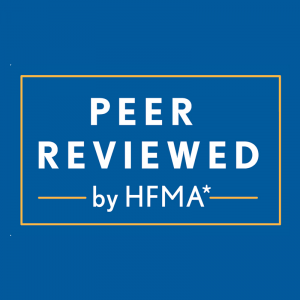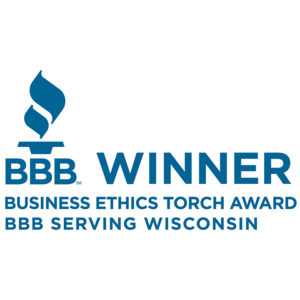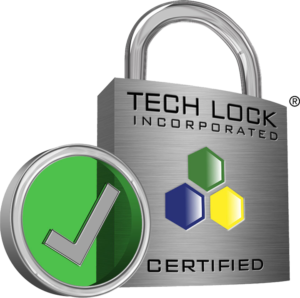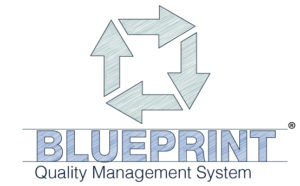Final regulations on Section 501r, issued in December 2014, hold non-profit hospitals accountable for any extraordinary collection actions taken by them or any third-party collection agencies working on their behalf or to which accounts have been sold.
Enacted as part of the Affordable Care Act, the Section 501r regulations require non-profit hospitals to do the following:
- Establish written financial assistance and emergency medical care policies
- Limit amounts charged for emergency or other medically necessary care to individuals eligible for financial assistance
- Conduct a community health needs assessment
- Make reasonable efforts to determine whether patients are eligible for financial assistance before engaging in extraordinary collection actions (ECAs)
When the Internal Revenue Service issued these final regulations late last year, they allowed for a reasonable transition period. Hospitals must be in compliance with the regulations for hospital tax years beginning after December 29, 2015. This means that hospitals with a calendar year tax year must be in compliance with the new requirements as of January 1, 2016. Hospitals with tax years beginning in later months will have a bit more breathing room before they must comply with the specific regulations. However, all hospitals should already be complying with a reasonable, good-faith interpretation of the statute. Not doing so puts non-profit hospitals at tremendous risk.
Billing and Collection Policy
Under the Section 501r regulations, hospitals must describe the actions to be taken if a bill is not paid. These actions can be described through a separate written billing and collection policy or incorporated into the hospital’s financial assistance policy.
A hospital is prohibited from engaging in ECAs prior to making reasonable efforts to determine whether patients are eligible for assistance under the hospital’s financial-assistance policy. It is therefor crucial for hospitals and third-party collection agencies to understand that the hospital’s policies.
Hospital policies must describe the following:
- Governance board authorized ECAs and the process and time frames for taking the collection actions.
- Reasonable efforts made to determine whether an individual is eligible for financial assistance prior to engaging in ECAs.
- The office or department with final authority and responsibility for determining that reasonable efforts were made prior to initiating ECAs.
Extraordinary Collection Efforts
The final regulations include the following list of ECAs that are prohibited prior to making a reasonable effort on financial assistance eligibility.
- Selling debt to another party, with the exception of certain debt sales where the hospital enters into a legally binding written agreement with the purchaser of the debt that describes specific conditions outlined in the regulations.
- Reporting adverse information to consumer credit reporting agencies or credit bureaus.
- Taking actions that require a legal or judicial process, including but not limited to the following:
- Placing a lien on property, with the exception of liens on judgments or settlements that a hospital is entitled to assert under state law for care providing to a patient as the result of personal injuries.
- Foreclosing on real property
- Attaching or seizing a bank account or any other personal property
- Commencing a civil action
- Causing an individual’s arrest
- Subjecting an individual to a writ of body attachment
- Wage garnishments
- Deferring or denying care, or requiring a payment, before providing medically necessary care to patients who have not paid prior balances.
Making Reasonable Efforts
Reasonable efforts must be made to determine financial assistance eligibility by notifying an individual of the financial assistance policy. No ECAs may be initiated prior to 120 days from the first post-discharge statement if a determination on financial assistance has not been made. A conspicuous written notice must also be included on patient billing statements.
Other permissible reasonable efforts include approving eligibility using information other than that provided by the individual or basing it on a previous eligibility determination. If hospitals use presumptively to grant assistance for “less than the most generous assistance” available under the hospital’s policy, they must notify individual regarding the basis for PE determination, provide information on how to apply for more generous assistance, process complete applications by end of application period or within reasonable time period prior to initiating ECAs.
It should be noted that hospitals are not allowed to use presumptive determinations to rule an individual ineligible for assistance.
Written Notice Prior to Initiating ECAs
At least 30 days in advance of initiating ECAs, a written notice must be provided to the patient delineating the deadline after which ECAs may be initiated. The notice must explain that financial assistance is available and identify the ECAs that the hospital or another authorized party intends to initiate. The patient must also be provided a plain-language summary of the financial assistance policy and efforts must be made to orally notify patients about financial assistance and how to apply for it during this period.
Is Your Hospital Compliant?
As 2016 approaches, hospitals should be well on their way to implementing policies that are in compliance with the final Section 501r regulations. Hospital policies and procedures must be aligned. If they are not, the hospital’s federal tax exemption may be at risk. Hospitals should take precautions to ensure that all theird party collection agencies are informed of their procedures and policies. Hospitals are also advised to have systems in place to monitor collection activities, both internal and third party collection actions.
If you have questions on your policies, procedures, or systems to monitor outside vendors, seek assistance from those with expertise on Section 501r.
Mark Rukavina is principal of Community Health Advisors, LLC, Boston, and a member of HFMA’s Massachusetts – Rhode Island Chapter (mark@communityhealthadvisors.com).
About State Collection Service, Inc.
Since 1949, State Collection Service has provided quality collection service to countless healthcare organizations.
Through experience and innovation, State Collection Service has grown to become a tremendously credible and nationally-recognized collection agency offering services from pre-registration to bad debt. It is upon the basis of ethical behavior and a dedication to integrity that each State Collection Service employee works to uphold the company’s vision – Partnerships for a Lifetime.
*This article first appeared in “A State Collection Service, Inc. Newsletter Volume 22, Issue 1, First Quarter 2016”















